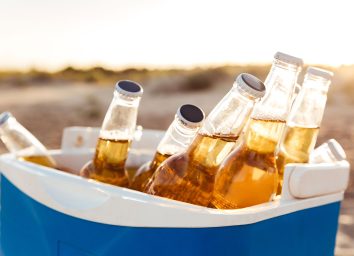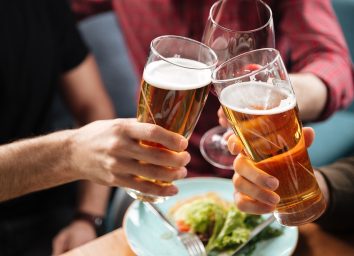Side Effects of Giving Up Beer, According to Science
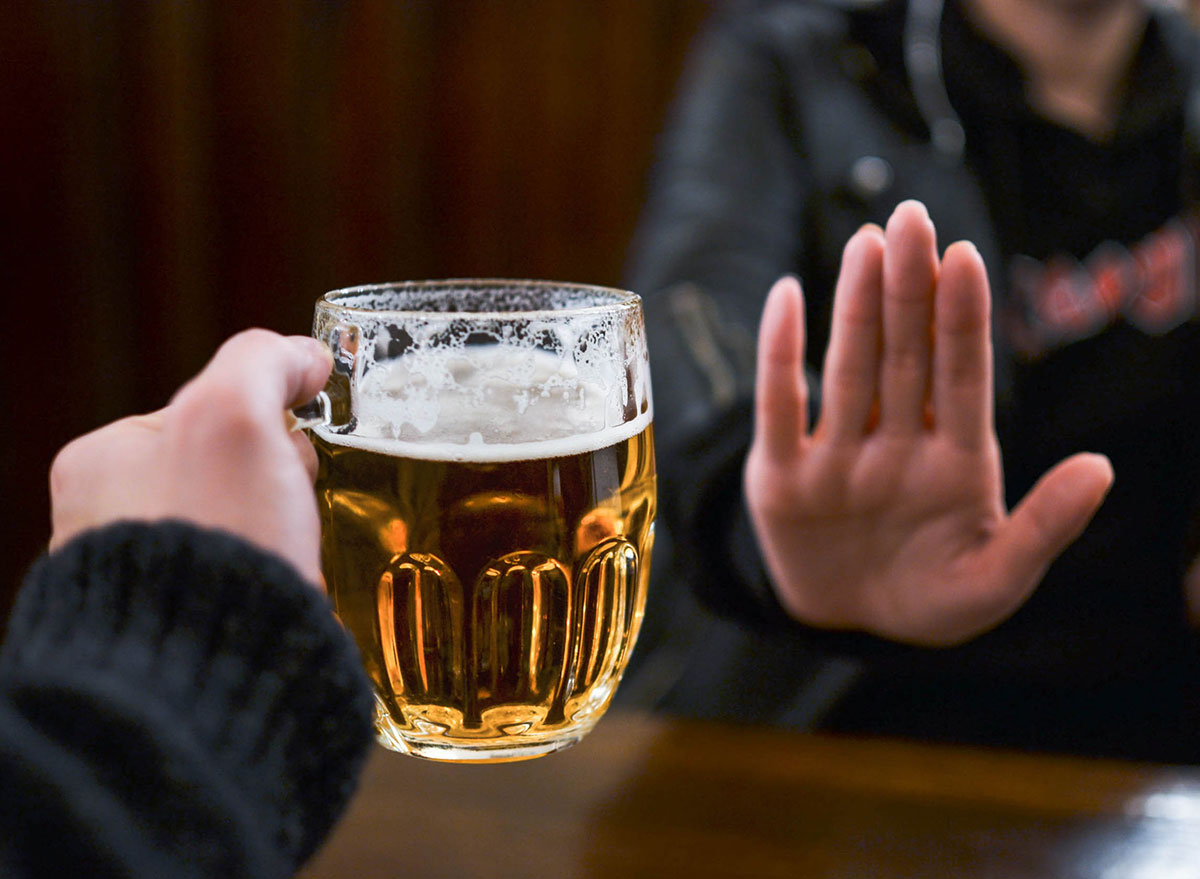
If the thought of cracking open an ice-cold beer on a hot summer day sounds irresistibly appealing, you may want to hit pause on the beer commercial running through your brain and tune into this PSA: Kicking the beer can (or bottle or draft) can have amazing health benefits. And you don't have to be in the habit of doing keg-stands to reap the rewards.
Below, are some of the potential side effects of easing up on the ale. Don't think you need to cut back? You might want to check out these 5 subtle signs you're drinking too much beer.
A flatter belly
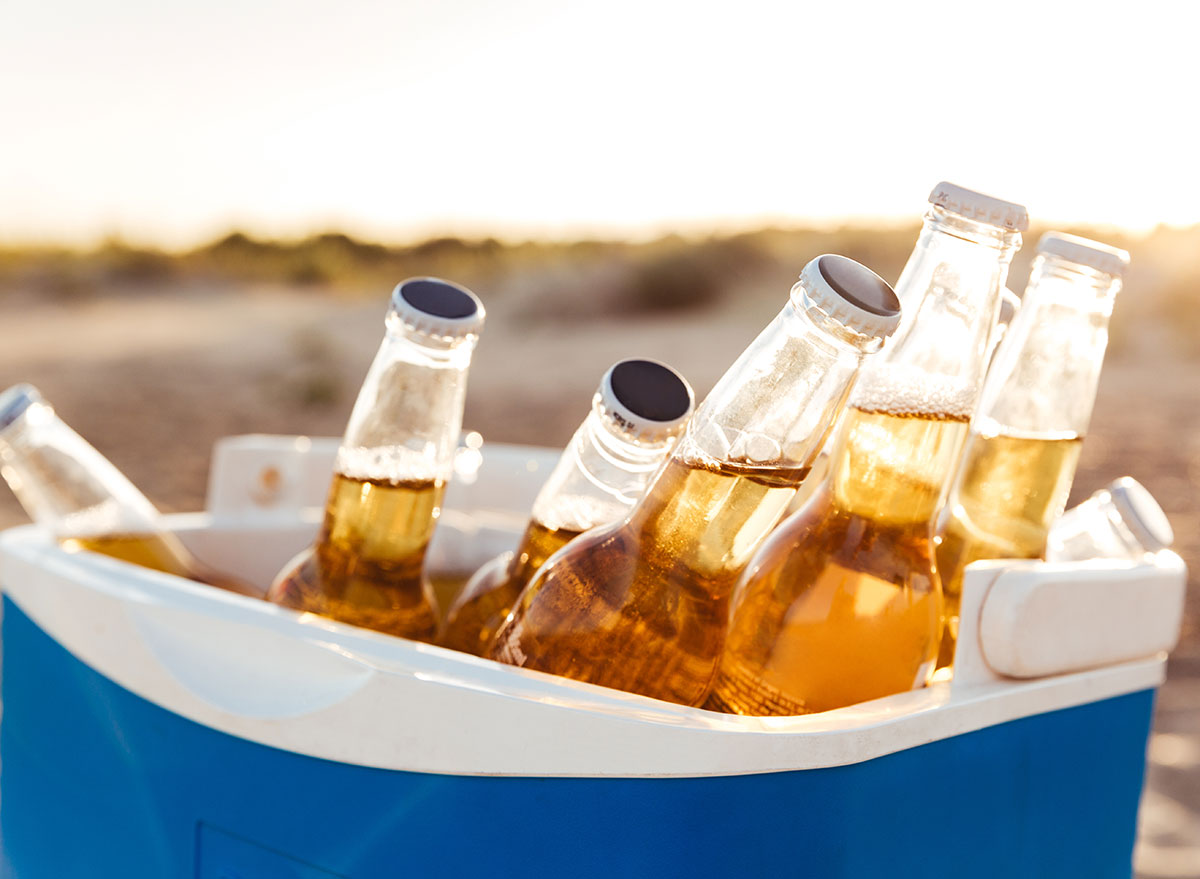
"Body by Bud" was never meant to be an aspirational slogan—for good reason. Regular beer drinking can cause weight gain. But the good news is that it's easy to reverse that weight gain by giving beer up!
"Cutting out beer from your diet can help to flatten your belly for a few reasons: it reduces your calorie intake, it can help prevent you from overeating since alcohol spikes your appetite, and because it prevents the carbs in beer from bloating you," says Dr. Josh Axe, DNM, CNS, DC, founder of Ancient Nutrition and author of the new, best-selling book Ancient Remedies. "Additionally, beer (and all alcohol) is capable of contributing to inflammation, disturbing the balance of microbes in your gut which support digestion, and irritating your gastrointestinal tract—all of which can increase a bloated/extended stomach."
Improved liver function
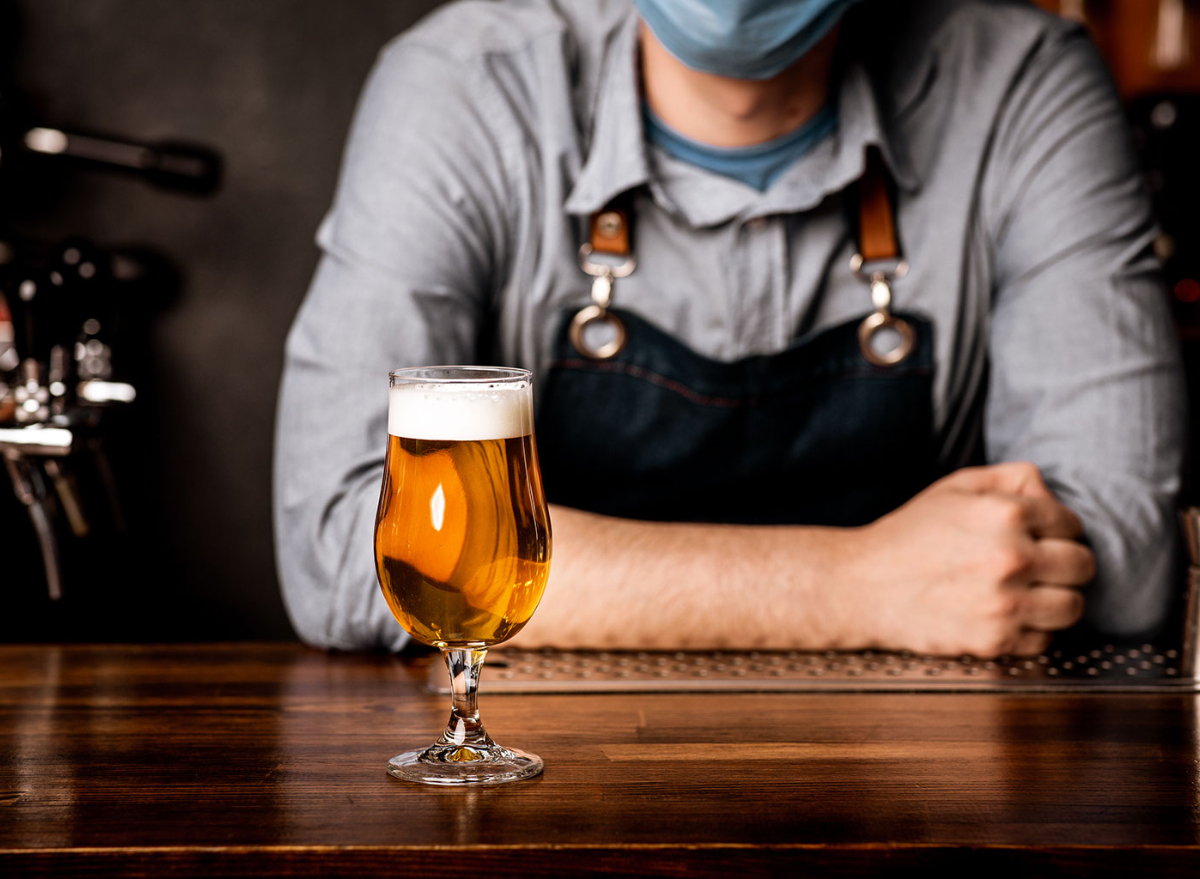
The liver is a shockingly resilient organ, but that doesn't mean you should test its limits. Drinking alcohol taxes the liver, so giving it up allows the liver to focus on myriad other jobs, such as breaking down toxins and metabolizing fats.
Weight loss
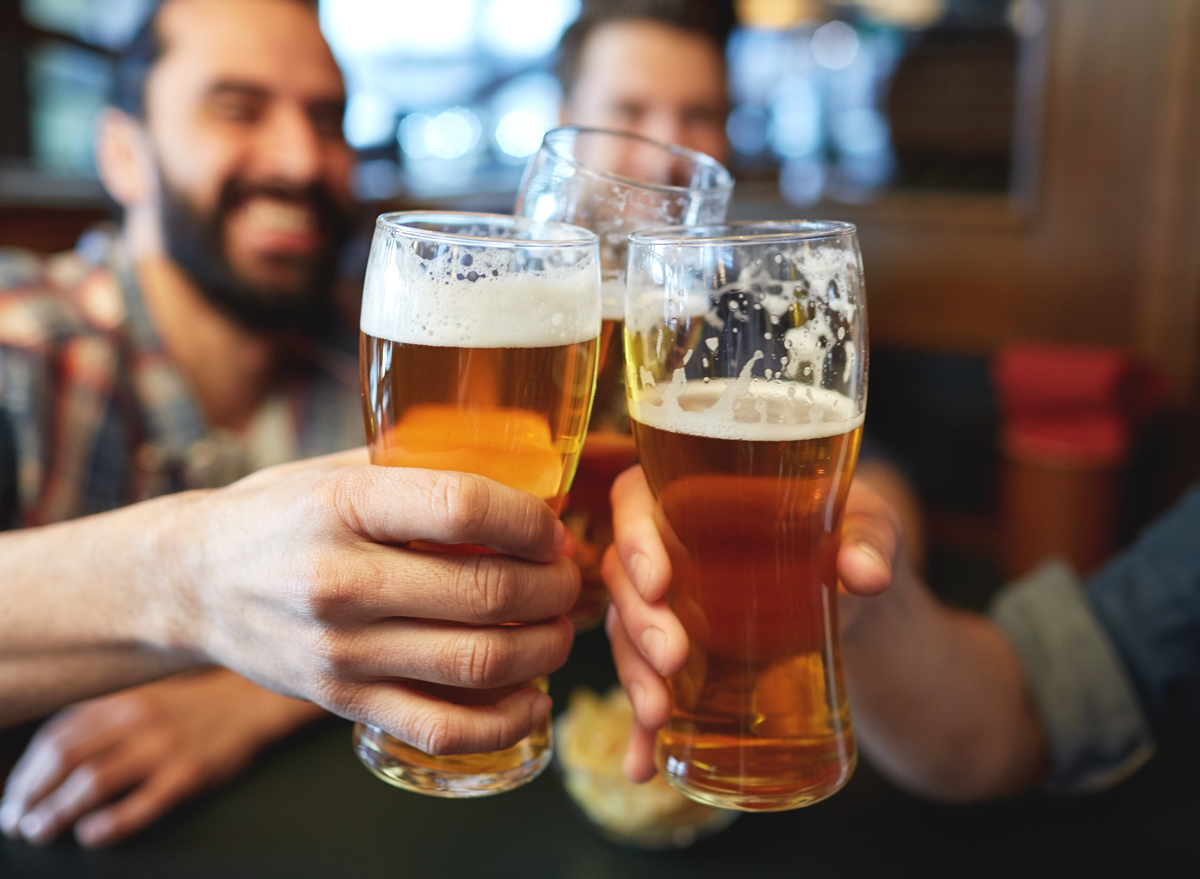
There's a reason spiked seltzers have clawed their way into the alcohol market over the last few years. With fewer carbs and calories (typically about 100 calories per serving versus the average beer's 150 calories). "When it comes to food, calorie counting is not the most effective weight-loss strategy," says registered dietitian Keri Glassman, RD, founder of Nutritious Life. "With alcohol, however, calories are a really helpful measurement. Since you're not getting any nourishment from imbibing, it makes sense to minimize the number of empty calories you're taking in." Beware, though: hard seltzers have some not-so-cute side effects too.
More restful sleep
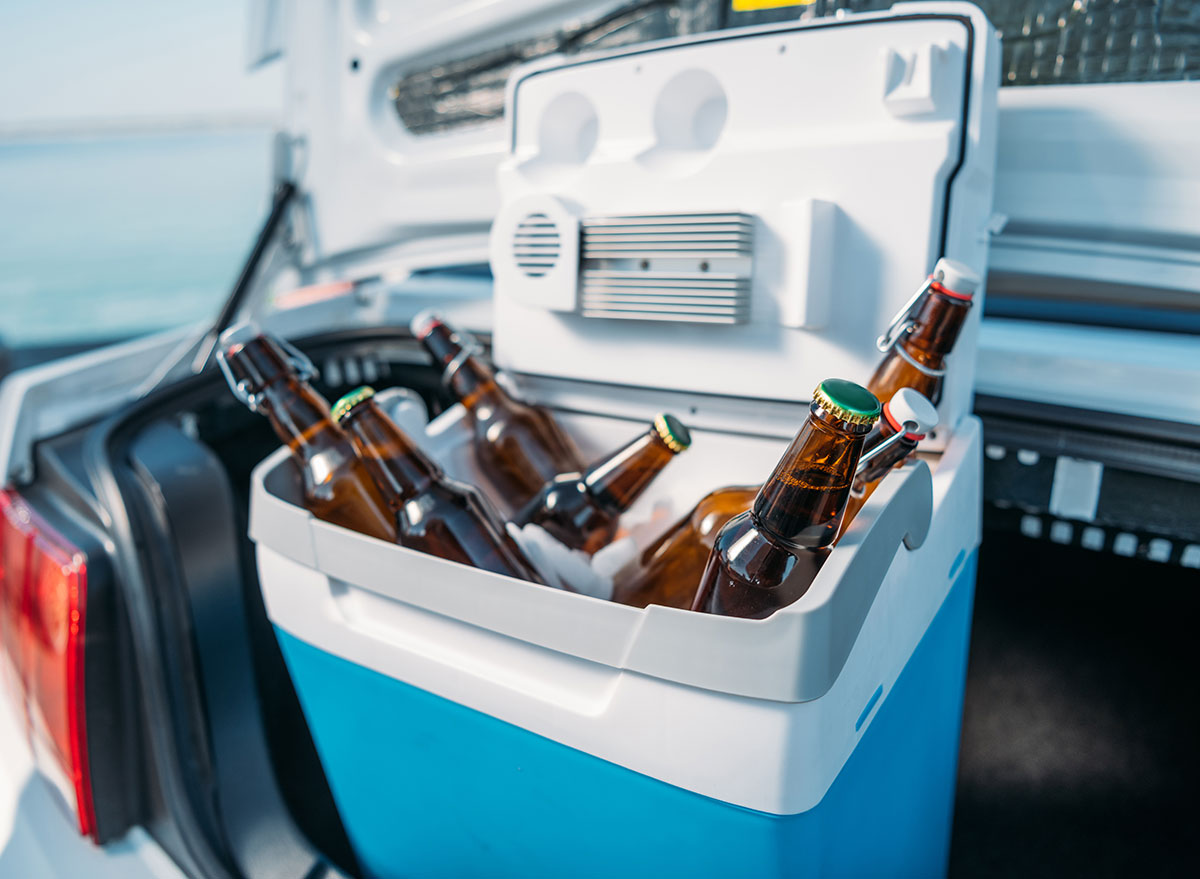
All alcohol messes with your natural sleep cycles for myriad reasons, from insulin spikes, to reflux to heartburn to other stimulating effects. "The closer your drinking is to bedtime, the more it will negatively affect your sleep," warns Frank Lipman, MD, Chief Medical Officer of THE WELL and co-author of Better Sleep, Better You. "Even two drinks a day is enough to create a sleep disturbance that extends beyond the 24-hour cycle in which you were drinking."
But there's one reason beer, in particular, might wreck havoc. People tend to drink beer at higher volumes than, say, wine or cocktails, making it more likely that you'll need to get up in the middle of the night to make a trip to the bathroom.
Less brain fog
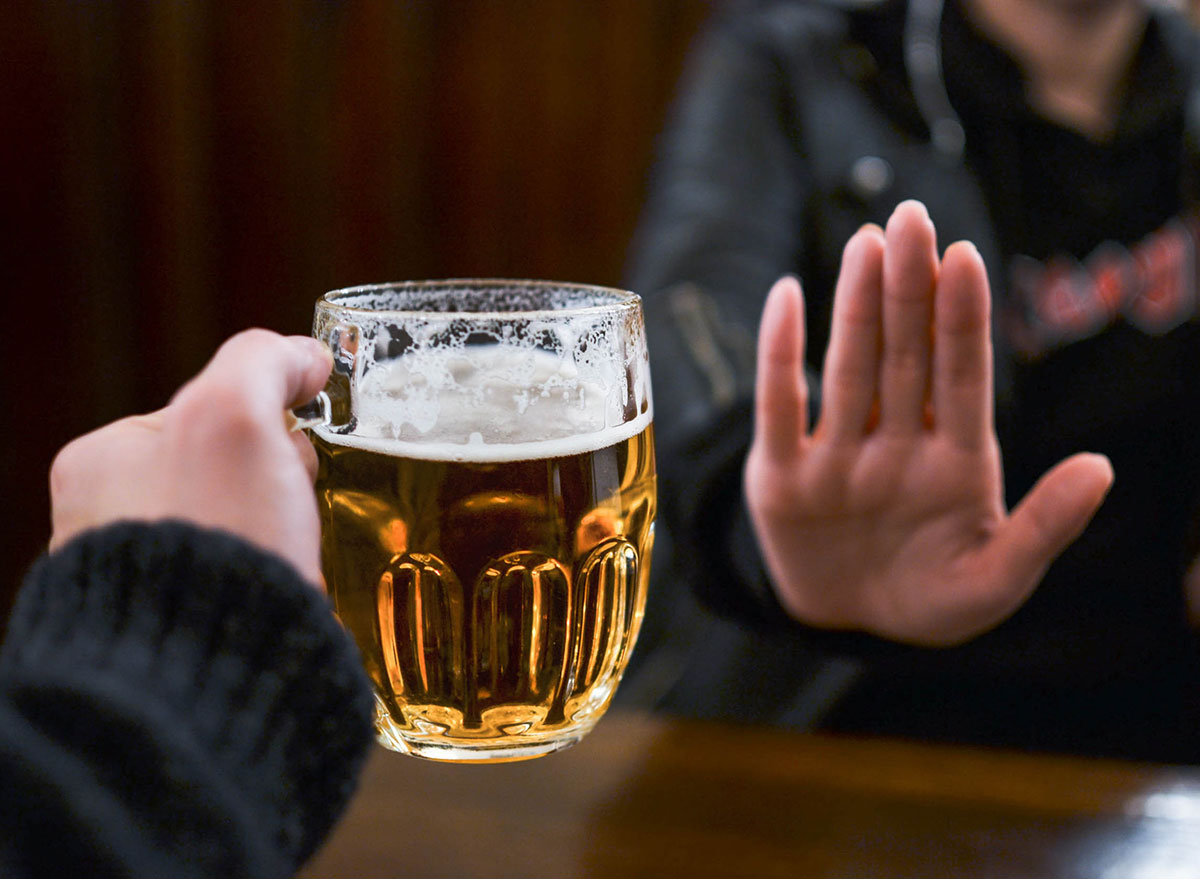
In addition to getting better sleep, which leads to more mental clarity, ditching beer can help you avoid some of the mycotoxins and heavy metals that sometimes creep into beer during the brewing process and interfere with proper brain function. Though generally found at low levels, studies show that some people are sensitive to these elements, especially if their liver isn't functioning properly or if they are drinking to excess.
Clinical neurophysiologist Suzanne Gazda, MD explains that mold toxins can cause neurodegeneration in various forms, the symptoms of which include cognitive problems that range from headaches to poor memory and more. Of course, you'd likely have to drink a brewery's worth of beer for it to be.
If you're ready to ditch drinking beer, but feel guilty about pouring your leftovers down the drain—don't stress. Instead, make a beer cheese dip and then check out these other tips for cooking with beer.
Still can't part with the fizzy satisfaction of sipping a beer? You can at least mitigate the negative side effects with one of these top non-alcoholic beers.

